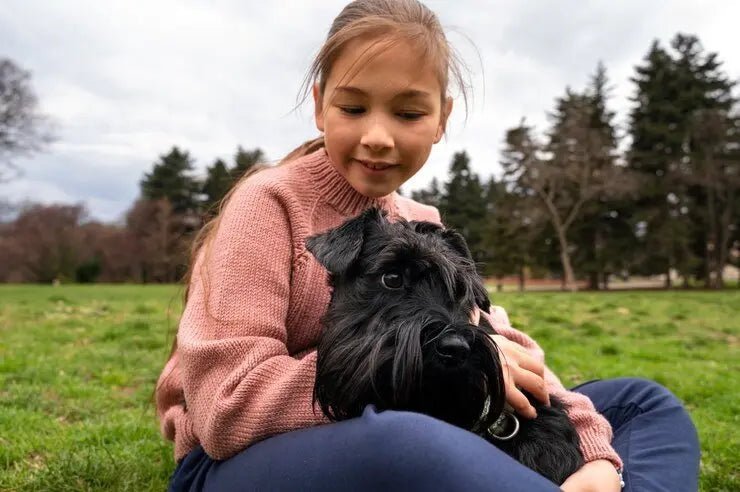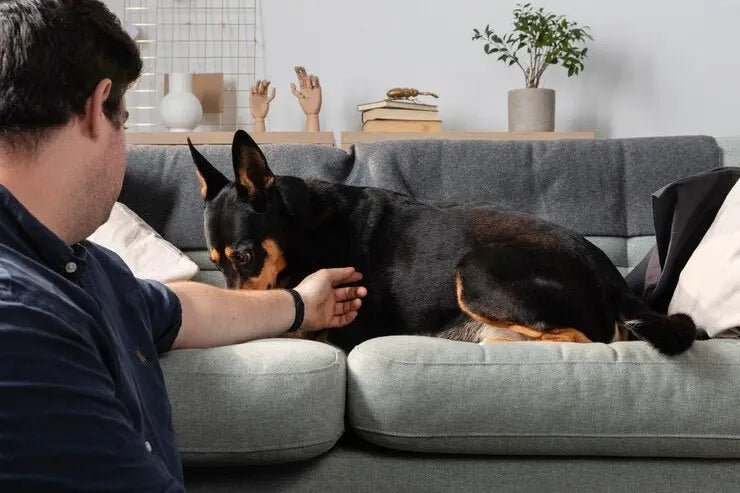
How to
How to Choose the Right Dog Breed for Your Lifestyle?
Choosing the right dog breed is one of the most important decisions you'll make as a future pet owner. With countless breeds available, each with its unique characteristics and needs, it's essential to match a breed with your lifestyle to ensure a happy and harmonious relationship. This guide will help you understand how to select the perfect breed for your lifestyle and living situation.

Check out the most search Pet Website online called Shaggy Chic!
Assess Your Lifestyle and Living Situation
Before choosing a breed, evaluate your lifestyle and living situation. Key factors to consider include:
-
Activity Level: Consider how active you are. Some breeds, like the Border Collie or German Shepherd, require significant exercise and mental stimulation. If you lead a more sedentary lifestyle, breeds like the Bulldog or Shih Tzu may be a better fit.
-
Living Space: The size of your home and yard plays a role in determining the right breed. Larger breeds often need more space, while smaller breeds can thrive in apartments or smaller homes.
-
Time Commitment: Some breeds demand more time for grooming, training, and exercise. Assess how much time you can dedicate daily. Breeds with high grooming needs include the Poodle and Afghan Hound.
-
Family Dynamics: Consider your household composition. Families with young children might benefit from breeds known for their patience and gentleness, such as the Labrador Retriever or Golden Retriever.

Research Different Breeds
Once you’ve assessed your lifestyle, start researching different breeds. Here’s a brief overview of some popular breeds and their characteristics:
-
Labrador Retriever: Known for their friendly and outgoing nature, Labradors are great for active families and individuals. They require regular exercise and enjoy playing fetch.
-
German Shepherd: Highly intelligent and versatile, German Shepherds excel in various roles, including family pets, working dogs, and service animals. They need ample exercise and mental stimulation.
-
Bulldog: Bulldogs are well-suited for apartment living due to their lower exercise needs. They are affectionate and make excellent companions but may require regular grooming to manage their skin folds.
-
Poodle: Available in three sizes (Standard, Miniature, and Toy), Poodles are intelligent and hypoallergenic. They need regular grooming and enjoy engaging in activities like agility training.
-
Shih Tzu: Shih Tzus are small, affectionate dogs with a friendly disposition. They adapt well to apartment living but require regular grooming to maintain their long coat.

Consider Health and Grooming Needs
Different breeds have varying health concerns and grooming requirements. Research the breed's common health issues and grooming needs:
-
Health Issues: Some breeds are prone to specific health problems. For example, Bulldogs may experience respiratory issues due to their brachycephalic (short-nosed) structure. Understanding these potential issues can help you prepare for proper care and vet visits.
-
Grooming: Breeds like the Poodle and Afghan Hound require regular grooming to keep their coats in good condition. On the other hand, short-haired breeds like the Boxer and Beagle have minimal grooming needs.

Shaggy Chic avail discount on Grooming Essentials for their beloved customers at initial purchase, Go and avail, Hurry Up!
Evaluate Your Ability to Train
Training requirements vary by breed. Some breeds are known for their ease of training, while others may be more challenging. Consider your experience and commitment to training:
-
Easy to Train: Breeds like the Labrador Retriever and Border Collie are known for their intelligence and eagerness to please, making them relatively easy to train.
-
Challenging: Breeds with strong independent streaks, such as the Basenji, may require more patience and consistency in training.
Think About Long-Term Commitment
Owning a dog is a long-term commitment that can last 10-15 years or more. Consider the long-term aspects of dog ownership:
-
Cost: Some breeds may be more expensive to care for due to health issues or grooming needs. Factor in the cost of food, vet visits, grooming, and other expenses when choosing a breed.
-
Lifestyle Changes: Think about how your lifestyle might change over the years. If you anticipate significant changes, such as moving or having children, choose a breed that can adapt to these changes.
Visit Shelters and Breeders
Before making a final decision, visit local shelters and reputable breeders. Meeting dogs in person can provide insight into their temperament and suitability for your home. Shelters often have mixed-breed dogs that may fit your criteria and provide an opportunity to adopt a dog in need of a home.
Do you want to know more about your Dog? Check out Shaggy Chic's Blog News!




